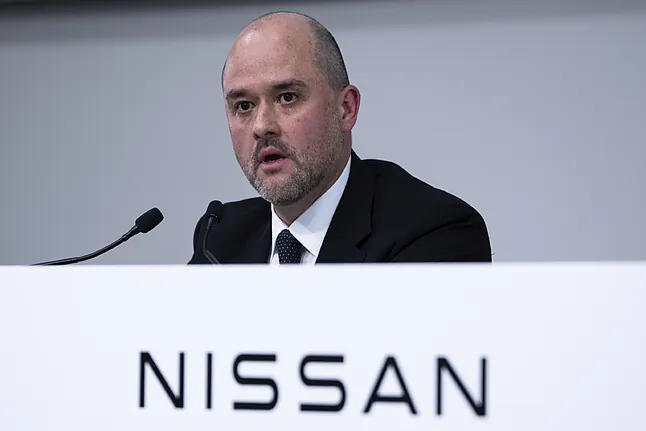Nissan has confirmed that its crisis is deeper than previously communicated. The Japanese car manufacturer will carry out 20,000 layoffs by 2027, around 15% of the total workforce. This figure represents an increase of 11,000 more layoffs compared to the 9,000 announced in November 2024, after suffering net losses of 670.9 billion yen (about 4.04 billion euros) in the last fiscal year.
The third-largest Japanese automaker by sales volume published its financial results for the 2024 fiscal year this Tuesday, confirming a situation that its top management described as "very complex" and for which they highlighted the need for "urgent" measures.
Its net losses contrast with the net profits of 426.6 billion yen (2.593 billion euros) obtained the previous year, and are mainly attributed to the sharp depreciation of its assets and the increase in operating costs.
The company's operating profit plummeted by 87.7% year-on-year, to 69.8 billion yen (about 424 million euros), while its revenue slightly decreased by 0.4%, to 12.63 trillion yen (about 76.8 billion euros).
"The fiscal year 2024 has been a great challenge for us, and we expect these challenges to continue in 2025," said Nissan's CFO, Jeremie Papin, during the results presentation.
These figures do not include the impact of the tariffs on vehicle imports imposed by the United States, which came into effect last April and are expected to have a negative effect of 45 billion yen (2.739 billion euros) on Nissan's accounts for the current fiscal year.
Faced with forecasts of losses for this fiscal year, the company announced last November 9,000 layoffs worldwide by the fiscal year 2026.
This figure has now been expanded to more than double to reach 20,000 by the end of the fiscal year 2027, which will take place between April of that year and March of 2028.
Nissan expects to return to profitability with these layoffs, combined with the reduction of its vehicle production plants worldwide from the current 17 to 10, which will reduce its global production volume by 30% excluding China.
The company's president and CEO, Iván Espinosa, justified these measures with the need to undertake a restructuring that is "faster" and "more ambitious" than initially proposed last year by the previous management.
Espinosa avoided providing more details on the factories that could be affected by the closures and layoffs, although he indicated that in addition to vehicle production facilities, cuts are also being considered in propulsion train plants.
As part of its restructuring plan, Nissan had already announced the cessation of production in Argentina, the consolidation of its pickups in Mexico, and the abandonment of its plan to build a new electric vehicle battery factory in the Japanese city of Kitakyushu, in the southwest of the archipelago.
